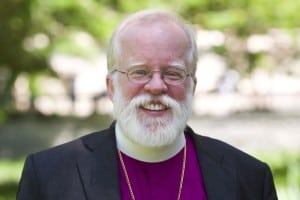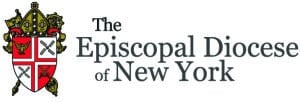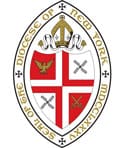Bishop Dietsche on Charlottesville
Bishop Dietsche today issued the following statement in response to the past weekend’s events in Charlottesville.
August 15, 2017
The events of this last weekend in Charlottesville have horrified Americans across our country. The virulence of the “Unite the Right” demonstrations themselves, with the viciousness of language and symbol, was in itself profoundly troubling and dangerous; but when it became the occasion for an instance of domestic terrorism, in which one woman lost her life and dozens of others were injured, we saw Charlottesville hold a mirror before America and reflect back to us an image that covers us in shame. All people of good will, and our leaders, have decried the violence and the loss of life, even as many have struggled to come to terms with the dark ideologies that were the foundation for these demonstrations.
When I wrote the draft of this letter yesterday, our president had not yet made his second public statement regarding Charlottesville, so that when that statement came I was gratified, as we all were, that he had finally named the evil of racism and called out the far-right groups and ideologies whose hate-based philosophies led to the events of Charlottesville and which have been a cancerous current running through American life and history from our beginning. He joined the countless others who in these days have insisted that these hate groups have no part in American discourse, that racism is an affront to Gospel and nation, and that the violent, rage-filled rhetoric of the Ku Klux Klan and the Nazis and the Alt-Right are a destructive force that will, if unchecked, undermine the foundation of our common life.
The president’s voice was all the more necessary and needed because too many of the white nationalist players in Charlottesville, including David Duke, have invoked the name of the President of the United States to give permission and justification for the white power rally, and to claim him as their champion. Indeed, his campaign signs were carried in Charlottesville alongside the poisonous claims of the Klan and the Nazis and those extolling racial hatred. Too often the rhetoric of the presidential campaign last year allowed this far right radical fringe to believe that Mr. Trump held, or endorsed, or at least accepted as legitimate, the same virulent ideologies. So that while it is with outrage and sorrow that we watched the events of Charlottesville, it was for a great many people no surprise. We are living in a time when the worst and most hateful racist impulses of people have been emboldened – and so emboldened, will relentlessly seek to push us as a people, and as a constitutional democracy pledged to the equality and inclusion of all people, to our breaking point. For the president to continue in his office with credibility as a domestic leader, he must not only distance himself from these forces, but put the full weight and voice of his office and his own character into the repudiation of white nationalism and racial hatred. It is incumbent on every one of us to pray that he and we will come to full understanding of the historic and dangerous hour to which we have come, and rise to the high calling which this hour demands. Those forces which we may in truth say are fashioned of evil itself, and which claimed their day in Charlottesville, may not stand. We must counter with everything we have.
And yet, history lays traps for everyone. The danger for all of us who oppose these racist movements is that when we see the kind of ugly displays that we saw in Charlottesville this weekend we can imagine that racism is their problem, and slide past our own complicity and involvement in the larger patterns of racism – in America and, it must be said, in the Church – which do not wear hoods or raise swastikas and where that complicity and involvement is therefore more insidious, harder to see and know, and therefore harder to root out.
It is not simply the Ku Klux Klan and the Nazis and the Alt-Right which we must fight, but the white supremacy which undergirds racism itself. We must never cease to make our deep exploration into the conscious and unconscious patterns of privilege which continue to give unearned rewards and opportunities to white people, while relegating people of color to a lower place and lesser opportunity and unheard voice, and the oppressive burdens of poverty and imprisonment and trampled dreams. Even as we never falter in our protest against the extremism of the racist radical right, we must recognize that that deeper struggle belongs to those on both sides of the line of skirmish, and must finally call all Americans to self-examination, to the repentance that follows true self-knowledge, and to a common commitment to amendment of life and to a renewed covenant. The way we do that as Christians is through baptism, and then through the costs and sacrifices of the baptismal life.
I am gratified to live my life in the Diocese of New York among thousands of believing people who are together committed to overcoming the racism which is still in our midst, overcoming prejudice against the LGBT community, overcoming the barriers to opportunity for women, overcoming rejection of the immigrant and de-legitimizing of those of other faiths. All of this is hard work, and it is not at all finished. But I am convinced that it begins with the overcoming of our own hearts and wills, and the humble self-offering that we make before our God and our Christ in baptism and our acceptance of Christian responsibility. If there is a lesson to be taken from Charlottesville, it is not that evil is simply out there in the world – we knew that – but that the battle is longer than we thought it would be, it is harder than we imagined, and it begins in the human heart.
Every time we bring a new Christian to the font for baptism the whole community is invited to renew our own baptismal vows and covenant. That we may remember who we are and whose we are. Sometimes we slide through the questions of baptism so quickly that I fear we have little time to contemplate the mighty words we are saying, the weight of the promises we are making. Even before we affirm our Christ, this: Do you renounce Satan, and all the forces of wickedness which rebel against God? Do you renounce the evil powers of this world which corrupt and destroy the creatures of God? Do you renounce all sinful desires that draw you from the love of God?
There it is. The evil that besets us from without and the evil that festers within.
Yours,

Martes, 15 de agosto de 2017
Los eventos acontecidos en Charlottesville este fin de semana han horrorizado a los estadounidenses en todo el país. La virulencia de las manifestaciones de “Unite the Right” (“Unir a la Derecha”), usando lenguaje y símbolo ponzoñosos, es algo profundamente preocupante y peligroso, pero que cuando se trasformó en la oportunidad para un caso de terrorismo doméstico, que resultó en la pérdida de la vida de una mujer y en docenas de heridos, vimos que Charlottesville sostiene un espejo ante Estados Unidos y nos muestra una imagen que nos cubre de vergüenza. Todas las personas de buena voluntad y nuestros líderes han condenado la violencia y la pérdida de vida, que ocurrieron a pesar de que muchos han luchado para llegar a un acuerdo con las ideologías oscuras que fueron la base de estas demostraciones.
Cuando ayer escribía el borrador de esta carta, nuestro presidente todavía no había hecho su segunda declaración pública con respecto a Charlottesville, de modo que cuando llegó esa declaración me sentí satisfecho como todos, porque finalmente él nombró el mal del racismo e impugnó a los grupos e ideologías de extrema derecha cuyas filosofías basadas en el odio llevaron a los acontecimientos de Charlottesville, y que han sido una corriente cancerosa que atraviesa la vida y la historia americana desde nuestros comienzos. Se unió a incontables otros, quienes en estos días han insistido en que estos grupos de odio no tienen cabida en el discurso americano, que el racismo es una afrenta al Evangelio y a la nación, y que la retórica violenta y llena de furia del Ku Klux Klan y de los nazis y de la ultra-derecha son una fuerza destructiva que, si no se controla, socavan la fundación de nuestra vida común.
La voz del presidente era aún más necesaria e indispensable, porque muchos de los protagonistas blancos nacionalistas en Charlottesville, incluyendo a David Duke, han invocado el nombre del Presidente de los Estados Unidos para permitirse y justificar la manifestación del poder blanco, y declararlo como su defensor. De hecho, los carteles de su campaña fueron portados en Charlottesville junto con las ponzoñosas afirmaciones del Klan y de los nazis y de quienes exaltan el odio racial. Con demasiada frecuencia, la retórica de la campaña presidencial del año pasado permitió que esta franja radical de extrema derecha creyera que el señor Trump sostenía o endosaba, o al menos aceptaba como legítimas las mismas ideologías virulentas. De modo que mientras vimos con indignación y dolor los acontecimientos de Charlottesville, para muchos no fue ninguna sorpresa. Vivimos en un momento en que los peores y más detestables impulsos racistas se han visto envalentonados — y tan envalentonados que incansablemente buscarán llevarnos, como un pueblo y una democracia constitucional que ha juramentado por la igualdad e la inclusión de todas las personas, a nuestro punto de mayor tensión. Para que el presidente permanezca en su administración con credibilidad como líder nacional, no sólo debe distanciarse de estas fuerzas, sino que debe ejercer todo el peso y la voz de su cargo y de su propio carácter para repudiar el nacionalismo blanco y el odio racial. Nos corresponde a cada uno de nosotros orar para que él y nosotros lleguemos a la plena comprensión de la histórica y peligrosa hora a la cual hemos llegado, y ponernos a la altura del gran llamado que esta hora exige. Esas fuerzas que podemos decir en verdad están hechas del mismísimo mal, y que reclamaron su día en Charlottesville, no pueden persistir. Debemos contrarrestarlas con todo lo que tenemos.
Y, sin embargo, la historia pone trampas para todos. El peligro para todos nosotros que nos oponemos a estos movimientos racistas es que cuando vemos el tipo de expresiones tan feas que vimos en Charlottesville este fin de semana, podemos imaginarnos que el racismo es su problema, y superar nuestra propia complicidad y participación en los patrones más amplios del racismo – en América, y hay que decirlo, en la Iglesia – donde no se usan capuchas ni se levantan esvásticas, y donde esa complicidad y participación es más insidiosa, más difícil de ver y conocer, y más difícil de erradicar.
No es sólo el Ku Klux Klan y los nazis y la Ultra-Derecha que debemos combatir, sino la supremacía blanca que subyace al racismo mismo. Nunca debemos dejar de hacer nuestra exploración profunda en los patrones conscientes e inconscientes de privilegios que siguen dando recompensas y oportunidades inmerecidas a los blancos, mientras se relega a las personas de color a un lugar inferior y de menor oportunidad y voz inaudible, y la carga opresiva de la pobreza y el encarcelamiento y los sueños pisoteados. Aun cuando nunca vacilemos en nuestra protesta contra el extremismo de la derecha radical racista, debemos reconocer que esa lucha más profunda pertenece a ambos lados de la línea de batallas, y finalmente debe llamar a todos los estadounidenses al auto-examen, al arrepentimiento que sigue al verdadero conocimiento de sí mismo y a un compromiso común de enmienda de vida y a un pacto renovado. Que la forma en que lo hacemos como cristianos es a través del bautismo, y luego a través de los costos y sacrificios de la vida bautismal.
Me complace vivir mi vida en la Diócesis de Nueva York entre miles de creyentes que están juntos comprometidos a superar el racismo que todavía existe en nuestro medio, superar los prejuicios contra la comunidad LGBT, superar las barreras contra la oportunidad para las mujeres, superar el rechazo del inmigrante y la deslegitimación de aquellos que profesan otras religiones. Todo este arduo trabajo, y no está terminado en lo absoluto. Pero estoy convencido de que comienza con la superación de nuestros propios corazones y voluntades, y la humilde ofrenda que hacemos ante nuestro Dios y nuestro Cristo en el bautismo y nuestra aceptación de la responsabilidad cristiana. Si hay una lección que se debe tomar de Charlottesville, no es que el mal está simplemente allá afuera en el mundo — eso lo sabemos — pero que la batalla es más grande de lo que pensábamos que sería, es más difícil de lo que imaginábamos, y comienza en el corazón humano.
Cada vez que traemos un nuevo cristiano a la fuente para el bautismo, toda la comunidad está invitada a renovar nuestros propios votos y convenios bautismales. Que podamos recordar quiénes somos y a quien le pertenecemos. A veces pasamos por las preguntas del bautismo tan rápidamente que me temo que tenemos poco tiempo para contemplar las poderosas palabras que estamos diciendo, el peso de las promesas que estamos haciendo. Incluso antes de afirmar nuestro Cristo, esto: ¿Renuncias a Satanás y a todas las fuerzas de maldad que se rebelan contra Dios? ¿Renuncias a los poderes malignos de este mundo que corrompen y destruyen las criaturas de Dios? ¿Renuncias a todos los deseos pecaminosos que te sacan del amor de Dios?
Ahí está. El mal que nos rodea desde afuera y el mal que penetra en nuestro interior.
Con las preguntas suspendidas en el aire, miro a mi alrededor a un mundo roto y destrozado, veo los fracasos de la comunidad, el odio y la violencia que desperdicia todo lo que toca, veo el sufrimiento de la gente, veo la enfermedad en mi país y en mi iglesia, y cuando tengo el valor de mirar, dentro de mi propio ser. Y porque amo a Jesús, porque amo a mis hermanos y hermanas— a todos ustedes — y porque Dios me ayuda quiero ser cristiano, puedo decir — voy a decir — aunque con el corazón roto:
Sí. Renuncio a ellos.
Con mis mejores deseos, quedo de ustedes
Suyo,

The Rt. Rev. Andrew ML Dietsche
Communications Office Contacts [connections category=15 template=”slim-plus” enable_search=’FALSE’ enable_bio=’FALSE’ enable_bio_head=’FALSE’ order_by=”Organization”]



